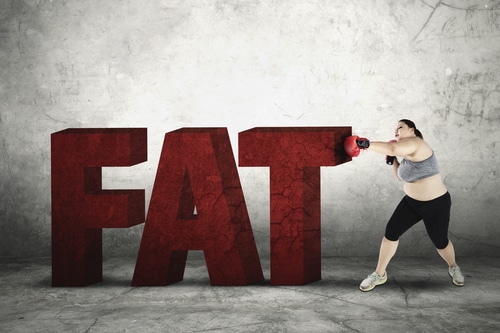Does Fat Affect Gout?
In this post we will learn about how fat relates to gout. Fat is important to our health because it supports many of the body’s functions. Fat provides energy and is a carrier of essential nutrients such as vitamins A, D, E, K, and carotenoids.
Problem with fat is it’s high in calories and more calories equals to more weight which is linked to poor health. We all eat fat every day, our bodies need it but the question is how much fat do we really need?
The confusion with fat is that there are two kinds. Harmful fats and healthy fats consisting of saturated, unsaturated, trans fat and polyunsaturated fat. Did you know that your body also makes its’ own fat when you eat excess calories?
The harmful fat consists of saturated and trans fat. Saturated fat comes mostly from animal sources of food like red meat, chicken, seafood and dairy products like cheese and butter. Saturated fat increases total cholesterol and LDL which can lead to heart disease down the road, even type 2 diabetes! Animal or vegetable, saturated fat carries the same risk.
Trans fat is made from food processing method where they partially hydrogenate which makes the food solid at room temperature like vegetable shortening and are found in many processed foods and fried foods.
When shopping at your grocery store and you see the words hydrogenated, partially hydrogenated, or shortening, it contains trans fat; you’re better off leaving it on the shelf. Trans fat will increase cholesterol and LDL the fastest and lower HDL the good cholesterol.
What Fats Are Healthy?
The healthier fats are mostly unsaturated. Polyunsaturated fat is mostly found in nuts, seeds, fatty fish like salmon which is very good for us since it provides omega-3 and omega-6 fatty acids which helps lower total cholesterol. Since our bodies don’t make them we have to get them from food.
Monounsaturated fats help raise HDL which is good cholesterol and can be found in avocados, nuts, seeds and olive oil. Olive oil should be the only oil used in all your cooking. I recommend in my ebook to avoid all vegetable oils and other oils like sunflower, canola etc.. since these are very harmful to our health.
In the world of good fats, you want to be eating mostly omega-3s which help fight inflammation, lower cholesterol and control blood clotting. So eating fresh fish like salmon, trout, flaxseed, walnuts and soy are excellent sources. The key in a gout diet is to eat 10% of your daily calories as fat, so about 200 calories a day.
Fat in a Gout Diet
The way fat affects gout is by adding more pounds causes to raise your uric acid levels and increases the risk of getting a gout attack. Put simply, the more you weigh the less efficient your body is at removing excess uric acid in the blood.
Dr. Hyon Choi who is a leading gout researcher at the Gout and Crystal Arthropathy Center at Harvard Medical School in Boston states, “There’s a very tight association between excess weight and the risk of developing gout and gout flares. It’s a dose-response relationship, meaning the more you weigh, the higher your risk, and the more likely you are to have recurrent attacks. Insulin resistance, a state in which insulin levels remain abnormally high because the body has reduced sensitivity to the hormone, is likely the major player in the increased risk of gout linked to body fat. Higher levels of insulin circulating throughout the body inhibit uric acid elimination by the kidneys.”
There is also something to be said about belly fat and the risk of gout. Research has found that gout and visceral fat, the fat that builds up inside the abdomen is linked to insulin resistance, potential development of type 2 diabetes as well as gout. Do you have a big belly?
A 2015 study published in Arthritis Research & Therapy found that people who were not overweight as measured by the BMI index but had high levels of visceral fat (belly fat) were at a higher risk to develop gout compared their flat belly counterparts (47.4% versus 27.3%). Furthermore, they were also more at risk of suffering from metabolic syndrome (31.7% versus 13.2%).
So how much fat should you eat every day? In a gout diet you should eat no more than 10% of your calories as fat. So in a typical and average diet of 2000 calories, 200 should be fat, so about 22 grams of fat can be eaten daily, if you wish to count your calories and fat intake.

